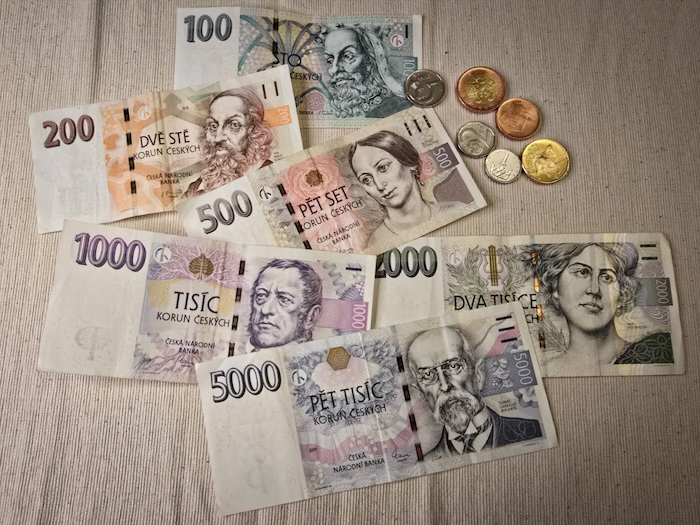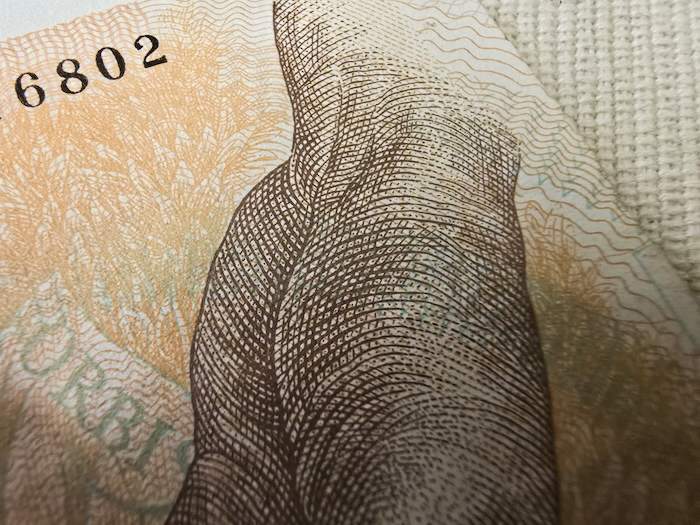Exploring the Czech Currency: A Guide to the Czech Koruna (CZK) 🫰🏻
The Czech Republic, known for its rich history, stunning architecture, and world-famous beer, has retained its own currency despite being a member of the European Union. The official currency is the Czech koruna (local abbreviation is Kč, international CZK), also referred to as the Czech Crown. Whether you're a traveler, an expat, or simply curious about global currencies, this guide covers everything you need to know about the Czech koruna.

The Czech Koruna: History & Background
The Czech koruna was introduced on February 8, 1993, after the peaceful dissolution of Czechoslovakia. Before that, the country used the Czechoslovak koruna. The Czech National Bank (Česká národní banka – ČNB) is responsible for issuing the currency and maintaining financial stability.
While the Czech Republic is a member of the European Union, it has not yet adopted the euro and currently has no immediate plans to do so. This allows the country to retain control over its monetary policy, which many view as beneficial for economic stability.
💡 FUN FACT: Back when Czechoslovakia was deciding on the name of its new currency (around 1919), there was even a suggestion to call it beet root. This idea was connected to the very strong sugar-producer lobby of the time – though of course it was more of a joke than a serious proposal.
💡 FUN FACT II: And the word dollar actually comes from the Czech tolar – a silver coin from the 16th century. So yeah, Czech money has influenced the world!

Czech Koruna: Coins & Banknotes
The Czech koruna is subdivided into 100 haléřů, but due to their low value and high production costs, haléř coins are no longer in circulation – so while a bill of 152.80 CZK is charged exactly by card, in cash you pay 153 CZK as it's rounded to the nearest crown.
Coins in Circulation:
- 1 CZK
- 2 CZK
- 5 CZK
- 10 CZK
- 20 CZK
- 50 CZK
Banknotes in Circulation:
- 100 CZK – Charles IV (Holy Roman Emperor and King of Bohemia)
- 200 CZK – John Amos Comenius (philosopher & educator)
- 500 CZK – Božena Němcová (writer)
- 1.000 CZK – František Palacký (historian & politician)
- 2.000 CZK – Emma Destinnová (opera singer)
- 5.000 CZK – Tomáš G. Masaryk (first Czechoslovak president)
Czech currency ranges from 20 CZK coins to 5,000 CZK notes, featuring historical figures arranged chronologically – from the oldest (Saint Wenceslas) to the most recent (Tomáš Garrigue Masaryk).
If you want to have all the examples of all the coins and notes you would have 8.888 CZK.

How to Pay in the Czech Republic
Cash vs. Card Payments
- Cash: The Czech koruna is widely used, and all shops accept CZK banknotes and coins.
- Card Payments: Most businesses in the Czech Republic accept Visa and Mastercard. American Express is usually not accepted.
- Minimum Card Payments: Some stores require a minimum amount (typically 100 CZK) for card transactions or may charge a small fee (~3%) for card payments
Can You Pay with Euros?
Some shops, especially in tourist areas, may accept euros (€), but it's not common. If they do, expect a poor exchange rate, and any change will be given in CZK.
Are US Dollars Accepted?
Recognizing & Avoiding Counterfeit Money
Czech banknotes include 8 security features to prevent counterfeiting:
Watermark
Windowed thread with microtext
Coloured fibres
Front-to-back register
Latent image
Colour-shifting ink
Iridescent strip
Microtext
❕ Always exchange money at official exchange offices or ATMs, and never on the street to avoid counterfeit currency. ❕
Czech Koruna Exchange Rates
Exchange rates fluctuate, so it's always best to check before exchanging money. In February 2025, the exchange rates were as follows:
1 EUR ≈ 24,50 CZK
1 USD ≈ 21,20 CZK
For up-to-date rates, check with your bank or use trusted exchange rate websites, eg. this one.

Cost of Everyday Items in Czech Koruna
Understanding local prices helps when budgeting for your trip. Here's an idea of what things cost in February 2025:
In Shops:
- Loaf of bread – 40 CZK
- Milk (1L) – 20 CZK
- Butter (250g) – 60 CZK
- Potatoes (1kg) – 25 CZK
- Flour (1kg) – 22 CZK
- Pilsner beer (0.5L bottle) – 32 CZK
In Restaurants:
- Lunch menu (basic meal) – 180 CZK
- Beer (0.5L draft) – 60 CZK
- Wine (0.2L glass) – 70 CZK
- Espresso coffee – 50 CZK
- Bottled water (0.3L) – 40 CZK
- Dinner in mid-range restaurant – 300 CZK
Tipping
Tipping in the Czech Republic is appreciated but not mandatory, with a standard 10% tip in restaurants for good service or simply rounding up the bill. In casual settings like pubs or taxis, rounding up to the nearest 10 or 20 CZK is common, while hotel staff and service providers also appreciate small gratuities.

The Future of the Czech Koruna
The debate about whether the Czech Republic should adopt the euro has been ongoing for years. While some believe adopting the euro would ease trade and travel, others argue that keeping the koruna provides greater economic stability. As of now, there are no official plans to replace the koruna with the euro.
Before you go
The Czech koruna reflects both the Czech Republic's history and its independence. Whether you're visiting for a short trip or staying long-term, knowing how to use and exchange CZK will make your experience smoother.
By using official exchange offices, avoiding street deals, and keeping some cash on hand for smaller transactions, you'll navigate the Czech financial landscape with ease.
📸 Some photos used under Creative Commons license. Full image credits here.
Authors of the article: Kristian & Anna



